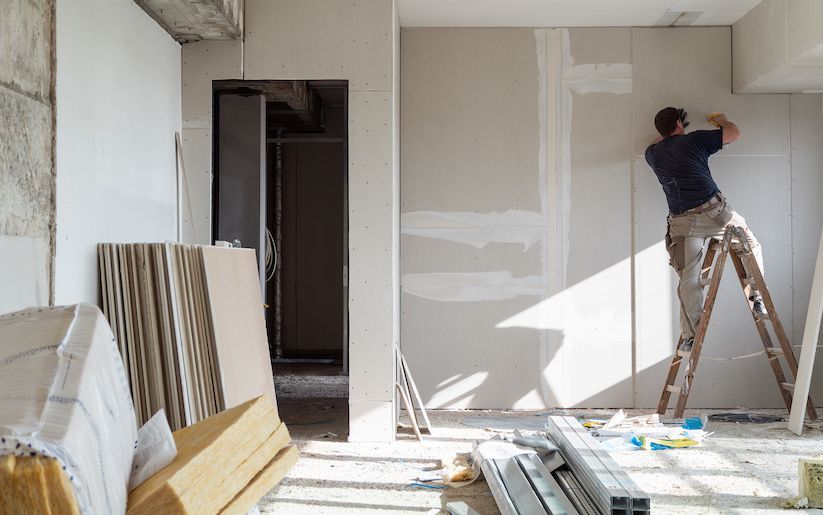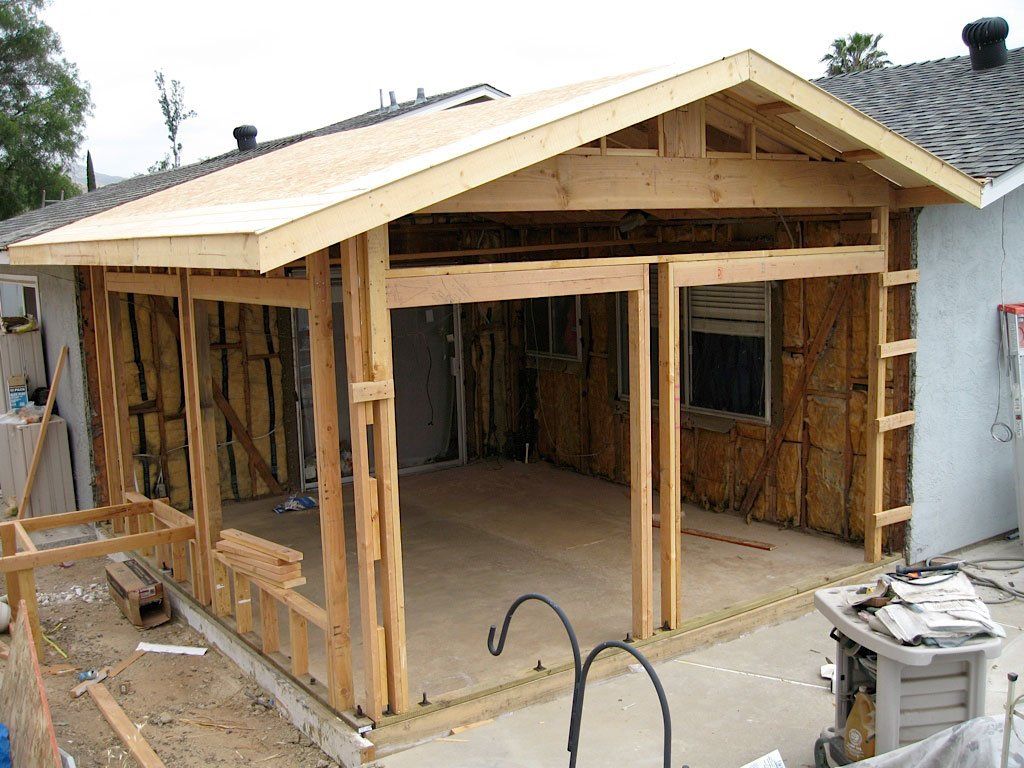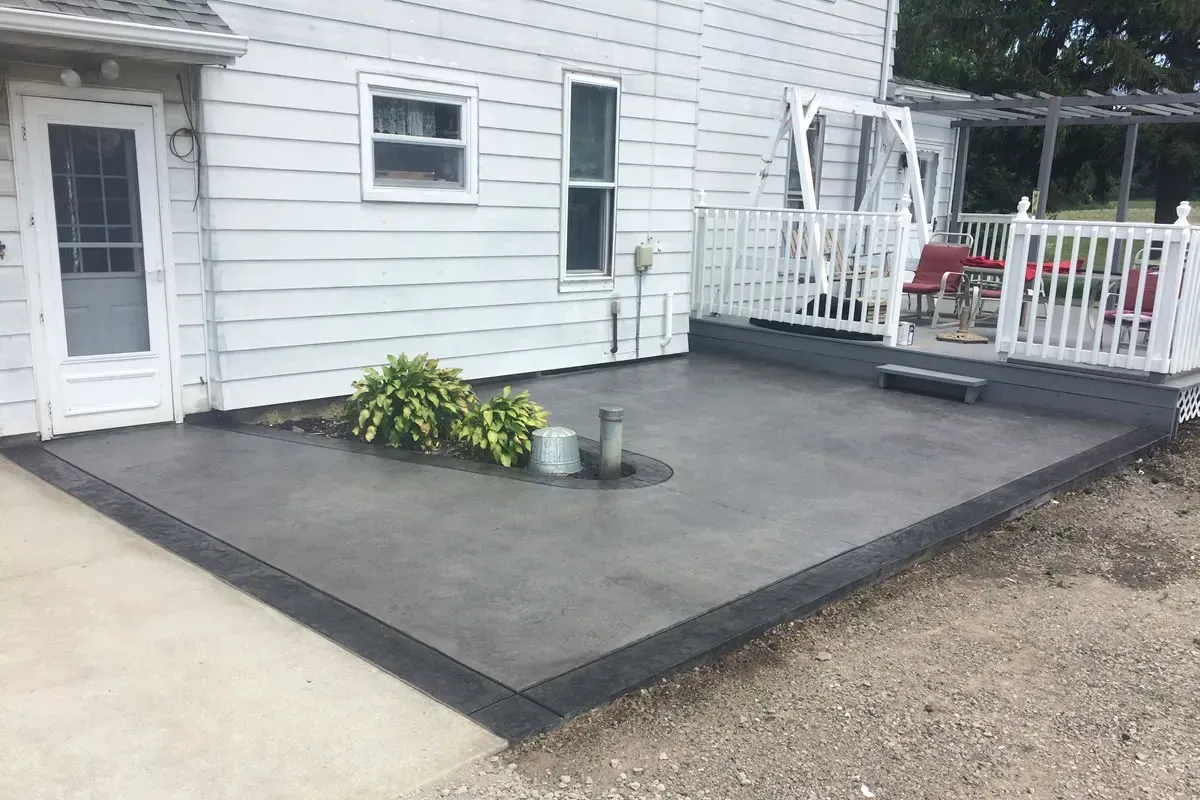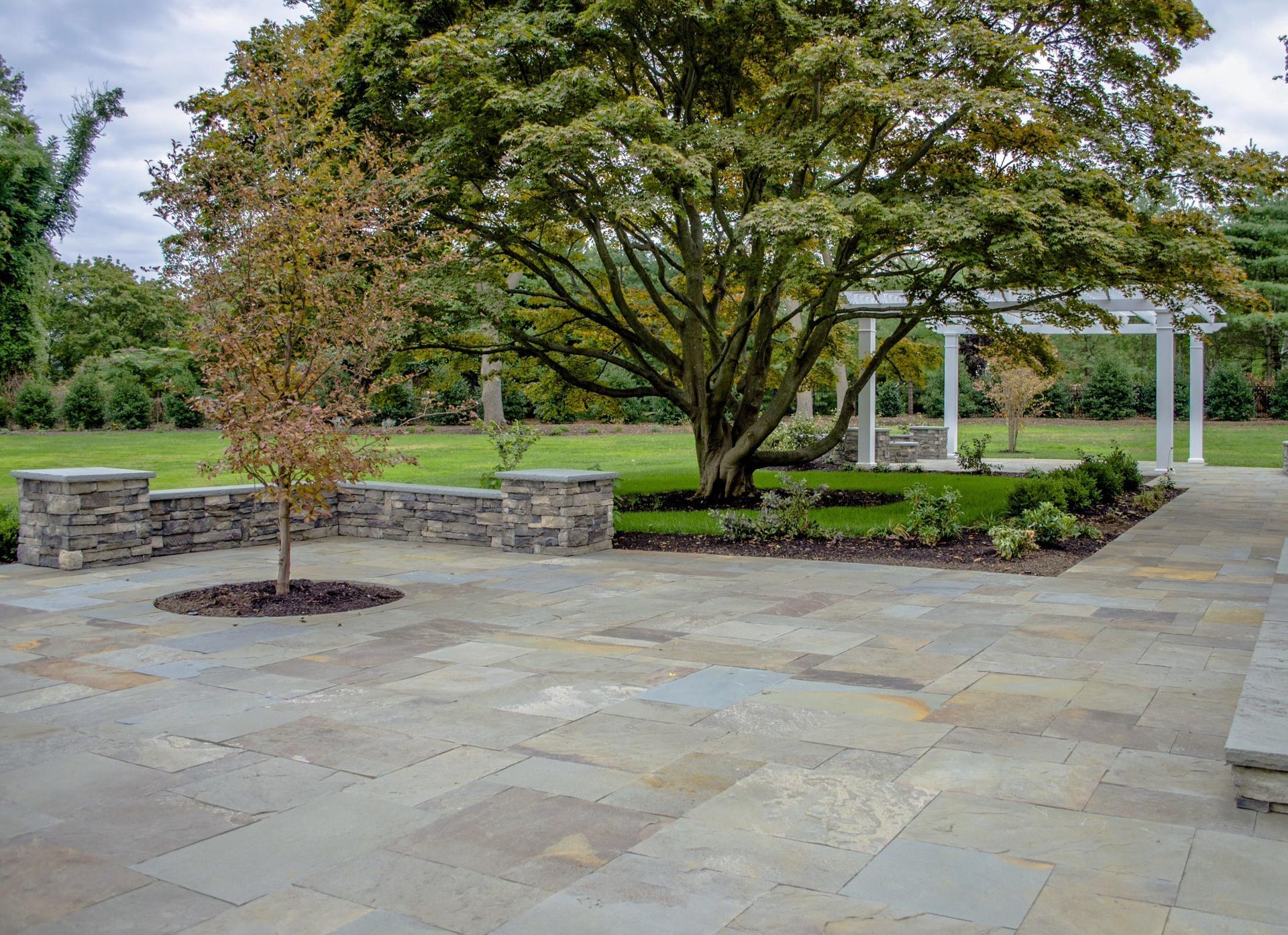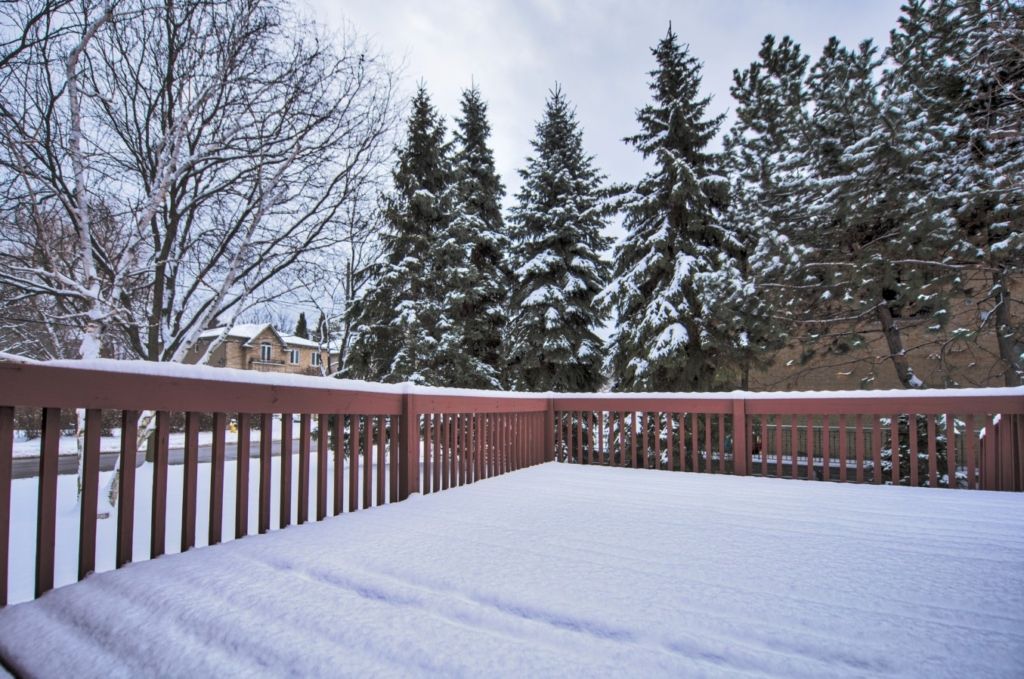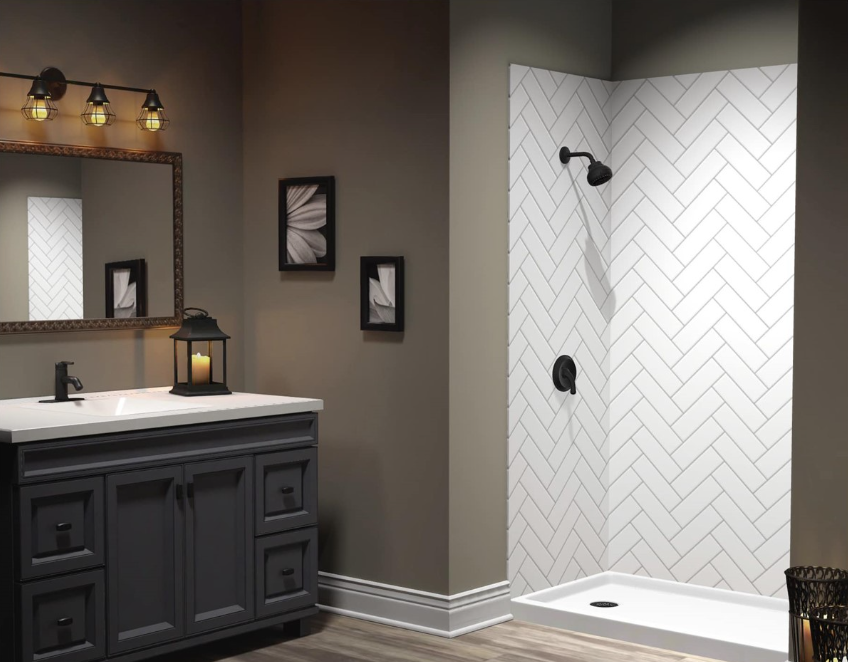Patio vs. Deck: Which is Right for Your Rhode Island Home?
A deck is an elevated platform typically made of wood, composite materials, or PVC that's attached to your home or freestanding in your yard. A patio is a ground-level outdoor living space usually constructed from concrete, pavers, stone, or brick that sits directly on a prepared base.
The choice between these options significantly impacts your outdoor experience, maintenance requirements, and long-term costs, especially in Rhode Island's challenging climate conditions.
Rhode Island Climate Considerations for Patios vs. Decks
Rhode Island's humid continental climate presents unique challenges for outdoor structures. The state experiences large ranges of temperature both daily and annually, great differences in the same season of different years, and considerable diversity of weather over short time periods.
How Rhode Island Weather Affects Decks
Wood decks are susceptible to cracking, splitting, warping and decay when exposed to New England's freeze/thaw cycles. Rhode Island's coastal location adds additional challenges:
Winter Impact on Decks:
- Freeze-thaw cycles cause wood expansion and contraction
- Salt air accelerates metal fastener corrosion
- Snow load stress on deck structures
- Ice formation creates safety hazards
Summer Challenges:
- High humidity promotes mold and mildew growth
- UV exposure fades and degrades wood surfaces
- Coastal salt spray accelerates weathering
- Temperature extremes cause material expansion
How Rhode Island Weather Affects Patios
Patios generally handle Rhode Island's climate better than elevated decks:
Winter Durability:
- Ground-level installation reduces wind exposure
- Solid materials resist freeze-thaw damage better
- Proper drainage prevents ice formation
- Snow removal easier on level surfaces
Year-Round Performance:
- Stone and concrete withstand temperature fluctuations
- Minimal maintenance during harsh weather
- Better long-term stability in coastal conditions
Cost Comparison: Patios vs. Decks in Rhode Island
Deck Installation Costs in Rhode Island
The average cost for deck installation in Rhode Island falls between $4,000 and just over $11,000, with most homeowners paying around $7,000.
Deck Cost Breakdown:
- Basic pressure-treated wood deck: $15-25 per square foot
- Composite decking: $25-45 per square foot
- Premium materials (cedar, mahogany): $35-60 per square foot
- Labor costs: $10-20 per square foot
Patio Installation Costs in Rhode Island
Patio Cost Breakdown:
- Concrete patios: $8-15 per square foot
- Paver patios: $15-30 per square foot
- Natural stone patios: $20-40 per square foot
- Stamped concrete: $12-25 per square foot
Long-Term Cost Considerations
Most decks need major repairs or full replacement after 10-20 years depending on climate conditions, while paver patios prove to be the more cost-effective investment for homeowners.
Maintenance Costs:
- Decks: $500-1,500 annually for cleaning, sealing, repairs
- Patios: $100-300 annually for cleaning and minor maintenance
Pros and Cons: Decks in Rhode Island
Deck Advantages
Elevated Views:
- Better ocean and bay views in coastal areas
- Overlook landscaping and property features
- Enhanced privacy from neighbors
- Better air circulation and cooling
Versatile Design Options:
- Multi-level construction possible
- Built-in seating and storage
- Pergolas and shade structures
- Hot tub and spa integration
Quick Installation:
- Faster construction than most patios
- Less site preparation required
- Can build over sloped terrain
- Minimal excavation needed
Deck Disadvantages in Rhode Island
Climate Vulnerability:
- Higher maintenance requirements due to material weathering over time
- Susceptible to storm damage
- Requires regular staining/sealing
- Wood rot and insect damage risks
Safety Concerns:
- Railing requirements for elevated structures
- Ice formation safety hazards
- Structural inspection needs
- Weather-related slip hazards
Limited Lifespan:
- Limited lifespan with most decks needing major repairs or full replacement after 10-20 years
- Ongoing replacement costs
- Material degradation over time
Pros and Cons: Patios in Rhode Island
Patio Advantages
Durability in Rhode Island Climate:
- Better resistance to freeze-thaw cycles
- Minimal weather-related damage
- Long-lasting materials
- Stable ground-level construction
Low Maintenance:
- Minimal annual upkeep required
- No staining or sealing needed (most materials)
- Easy snow removal
- Resistant to storm damage
Versatile Materials:
- Natural stone for coastal aesthetics
- Pavers for design flexibility
- Concrete for budget-friendly options
- Brick for traditional New England charm
Patio Disadvantages
Site Limitations:
- Requires level or gently sloped terrain
- Extensive excavation for proper base
- Drainage considerations crucial
- May require retaining walls
Design Constraints:
- Ground-level limits views
- Less privacy than elevated decks
- Cannot easily span obstacles
- Limited vertical design elements
Initial Installation:
- Longer construction timeline
- Weather-dependent installation
- Requires proper site preparation
- Higher upfront costs for premium materials
Rhode Island Building Permit Requirements
Deck Permit Requirements
Generally you will need a building permit for most projects including exterior work such as decks in Rhode Island municipalities.
Deck Permits Typically Required For:
- Decks over 30 inches high
- Attached decks of any height
- Structural modifications to existing decks
- Electrical work for deck lighting
- Hot tub installations
Patio Permit Requirements
Permits are not required for landscaping and patio walls less than 4' in height in many Rhode Island towns, but requirements vary.
When Patio Permits May Be Required:
- Extensive drainage modifications
- Retaining walls over 4 feet
- Electrical installations
- Fire pit or fireplace additions
Municipal Variations
Different Rhode Island cities and towns have varying permit requirements:
Providence: More stringent permit requirements
Newport: Historic district considerations
Warwick: Standard residential permit processes
Coastal communities: Additional CRMC permits may be required
Rhode Island Soil and Site Considerations
Coastal Area Challenges
Sand and Sandy Loam Soils:
- Better drainage for patios
- May require deeper foundations for decks
- Easier excavation but less stable
- Salt exposure considerations
Clay Soil Areas:
- Drainage challenges for both options
- Requires proper base preparation for patios
- Frost heave concerns
- Foundation stability issues
Inland Property Considerations
Rocky Terrain:
- May favor deck construction
- Excavation challenges for patios
- Good drainage typically available
- Stable foundation conditions
Design Considerations for Rhode Island Homes
Matching New England Architecture
Colonial and Cape Cod Styles:
- Stone or brick patios complement traditional architecture
- Wood decks suit casual coastal aesthetics
- Consider proportional scale to home size
- Maintain sight lines and symmetry
Coastal Contemporary Homes:
- Composite decking for modern aesthetics
- Concrete patios for clean lines
- Consider wind and salt exposure
- Emphasize low-maintenance materials
Integrating with Rhode Island Landscapes
Native Plant Compatibility:
- Patios provide stable base for container gardens
- Decks allow underneath planting space
- Consider seasonal plant changes
- Plan for winter landscape appearance
Maintenance Requirements in Rhode Island
Deck Maintenance Schedule
Annual Requirements:
- Inspect all fasteners and connections
- Clean and treat wood surfaces
- Check railing stability
- Repair storm damage promptly
Seasonal Tasks:
- Spring: Inspect winter damage, clean surfaces
- Summer: Monitor for insect damage, maintain finish
- Fall: Clean debris, prepare for winter
- Winter: Remove snow load, check for ice damage
Patio Maintenance Schedule
Annual Requirements:
- Inspect for settling or cracking
- Clean surfaces and remove stains
- Check drainage systems
- Reseat loose pavers or stones
Minimal Ongoing Care:
- Seasonal cleaning
- Occasional weed control
- Snow and ice removal
- Periodic resealing (if applicable)
Best Materials for Rhode Island Conditions
Deck Materials for Rhode Island
Pressure-Treated Lumber:
- Budget-friendly option
- Requires regular maintenance
- Suitable for inland properties
- 10-15 year lifespan with care
Composite Decking:
- Low maintenance requirements
- Weather-resistant properties
- Higher upfront cost
- 20-30 year lifespan
PVC Decking:
- Excellent coastal performance
- Minimal maintenance needs
- Premium pricing
- Longest lifespan option
Patio Materials for Rhode Island
Natural Stone:
- Excellent durability
- Beautiful aging characteristics
- Higher cost but long-lasting
- Perfect for coastal aesthetics
Concrete Pavers:
- Good balance of cost and performance
- Design flexibility
- Easy replacement of individual units
- Suitable for all Rhode Island conditions
Poured Concrete:
- Most budget-friendly option
- Excellent durability
- Limited design options
- Professional installation recommended
Seasonal Usage in Rhode Island
Extending Usage Season
Deck Season Extension:
- Covered sections for rain protection
- Wind screens for coastal exposure
- Heating elements for cool evenings
- Snow removal accessibility
Patio Season Extension:
- Fire pits for warmth
- Covered dining areas
- Wind protection important
- Better winter accessibility
Rhode Island's Outdoor Living Season
Peak Usage: May through October
Extended Season: April through November with proper design
Winter Considerations: Both options need winter preparation
Year-Round Elements: Fire features, covered areas, lighting
Environmental Considerations
Coastal Environmental Factors
Salt Air Exposure:
- Affects all metal components
- Accelerates wood decay
- Consider corrosion-resistant materials
- Regular cleaning essential
Storm Resilience:
- Patios generally more storm-resistant
- Deck elevation creates wind exposure
- Drainage crucial for both options
- Emergency access considerations
Sustainable Options
Environmentally Friendly Deck Materials:
- Recycled composite materials
- Sustainably harvested wood
- Local material sourcing
- End-of-life recyclability
Sustainable Patio Options:
- Locally quarried stone
- Permeable paving materials
- Recycled concrete options
- Native plant integration
Making the Right Choice for Your Rhode Island Home
Choose a Deck If:
- You want elevated views of water or landscape
- Your lot has significant slope issues
- You prefer faster installation
- You plan to integrate hot tubs or built-ins
- Your budget favors lower upfront costs
- You're willing to commit to regular maintenance
Choose a Patio If:
- You prioritize low maintenance
- You want maximum durability in Rhode Island's climate
- You prefer ground-level entertaining
- Your lot has good drainage
- You want the most cost-effective long-term solution
- You plan extensive landscaping integration
Combination Options
Consider combining both for maximum functionality:
- Deck for dining and elevated seating
- Patio for fire pit and ground-level entertaining
- Transition areas connecting different levels
- Seasonal usage optimization
Professional Installation in Rhode Island
Finding Qualified Contractors
Verification Steps:
- Check that contractors are licensed or registered by the State of Rhode Island
- Verify local building experience
- Request recent project references
- Confirm insurance and bonding
- Review portfolio of Rhode Island projects
Questions to Ask Contractors:
- Experience with Rhode Island climate challenges
- Material recommendations for your specific location
- Warranty terms and coverage
- Maintenance requirements and schedules
- Permit handling and inspections
Timeline and Project Planning
Best Times for Construction in Rhode Island
Optimal Construction Seasons:
- Spring (April-May): Ideal weather, material availability
- Early Summer (June-July): Peak construction season
- Fall (September-October): Good weather, fewer delays
Avoid Construction During:
- Winter months: Weather delays, material issues
- Peak summer (August): High demand, scheduling challenges
- Hurricane season: Potential weather disruptions
Project Planning Timeline
Deck Installation: 1-3 weeks
Patio Installation: 2-6 weeks (depending on materials and site prep)
Permit Processing: 1-4 weeks (varies by municipality)
Design Phase: 2-8 weeks
Ready to create the perfect outdoor living space for your Rhode Island home?
Rockhouse Construction specializes in both deck and patio construction throughout Rhode Island. Our experienced team understands the unique challenges of Rhode Island's climate and coastal conditions, ensuring your outdoor space is built to last. We handle all aspects of construction from design and permitting to professional installation and finishing.
Contact us today for a consultation and let us help you choose and build the ideal outdoor living solution for your Rhode Island property.
